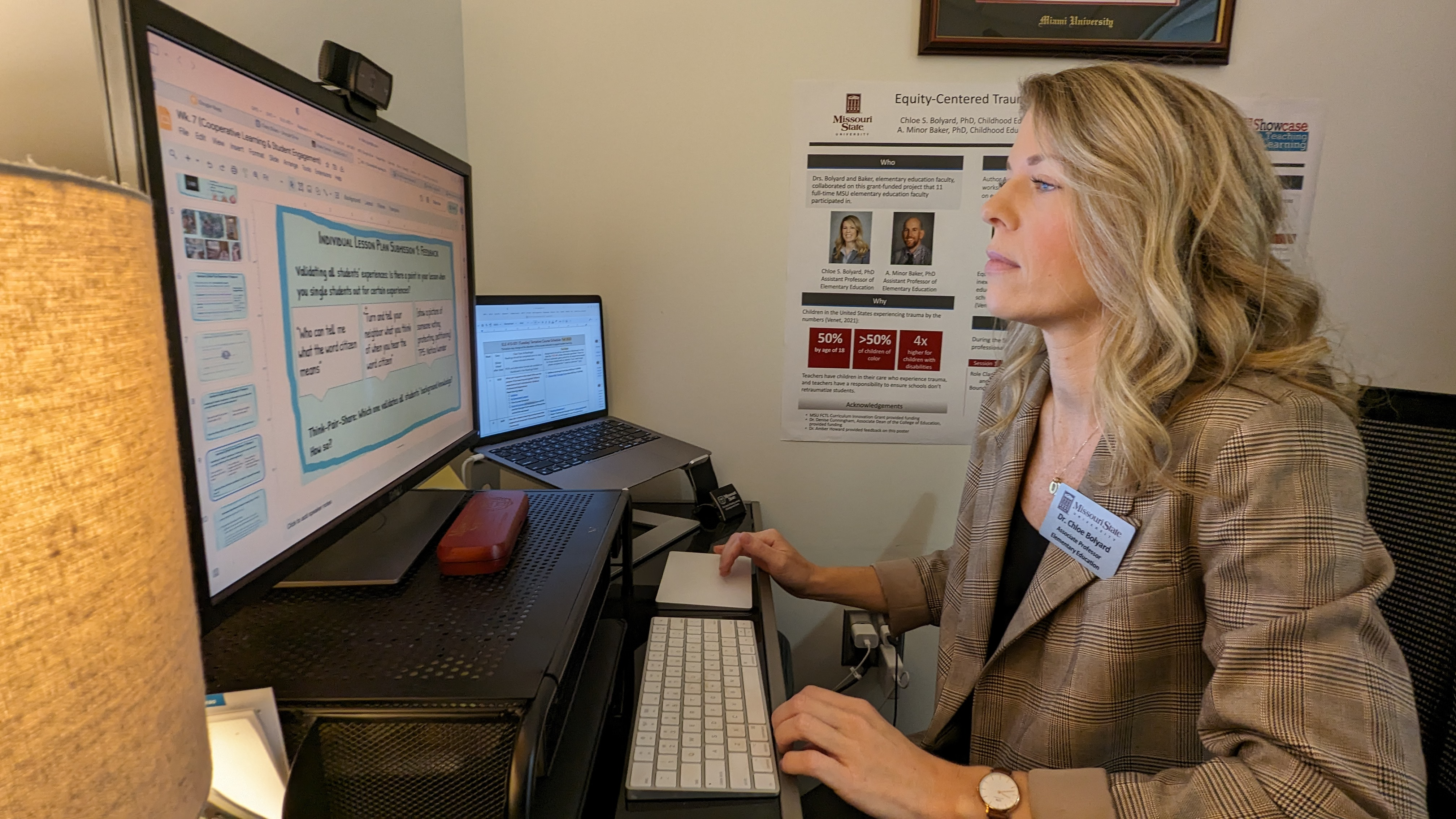The irony is not lost on Chloe Bolyard. The associate professor of elementary education at Missouri State University knows her process of not grading assignments is used on students intent on entering a profession filled with the act of grading.
The wrinkles caused by that irony are worth ironing out, she said, because the benefits look pretty smooth.
“When I asked my students what their initial thoughts were about ungrading, some said they wanted to try it with elementary students,” said Bolyard, Since the spring 2021 semester, Bolyard has stopped grading assignments in her high-level education classes — ELE 410, which is Teaching in an Elementary Classroom, and ELE 711, Contemporary Issues in Elementary Curriculum.
She has shifted to a system of reporting assignments to a status: complete; revise and resubmit; and not submitted. She swapped rubrics and other scoring assistants with self-assessments and added end-of-semester one-on-one conferences.
Students still earn mid-semester and end-of-semester letter grades for the entire course, used for figuring overall college grade point averages. But it’s the only time they see a letter grade.
Bolyard’s strategy is part of a trend in education known as “ungrading,” So far, Bolyard has found it fascinating and encouraging, because it has put an emphasis on learning, instead of achieving. It makes teaching more rewarding, she said, because the processes of revising and resubmitting assignments, student reflections and qualitative feedback help students take lessons to heart.
“I remember what I personally experienced as a student,” Bolyard said. “I always had high grades, and I would always cram for tests and get an ‘A,' but I don’t know how much I learned or maintained.”

Pandemic helped spur switch
Parenthood and the pandemic helped lead Bolyard to ungrading. In the weeks and months after the COVID-19 pandemic’s start in March of 2020, many teachers became more flexible in working with their students. While she was on maternity leave, she read “Ungrading: Why Rating Students Undermines Learning (and What to Do Instead)” by Susan Blum, and found it to match many of her own thoughts about what teachers should do.
Her interest in the book led her to an online community that did a deep dive into the practices and strategies behind it.
“I didn’t know how practically its practices with students aligned with my philosophy,” Bolyard said. “I decided in the spring ‘21 semester I wanted to be proactive and compassionate, because the pandemic wasn’t over. That book club gave me the courage to try it out.”
So far, the toughest part of the switch has been on her end. Bolyard said she had to wrangle with Blackboard, the university’s student grading portal, in order for it to report accurately with her students. The revision process also means students have to look at the same assignment multiple times.
But those issues are offset greatly by the positives, Bolyard said. Students have responded significantly, saying the process connects them to teaching more deeply.
Students negotiate final letter grade
As for the act of determining mid- and end-of-semester letter grades, students are involved in that process, as well. Students give themselves a grade and justify it through a negotiation process.
“The part that feels a little uncomfortable is that final conversation where we negotiate grades, because it can feel subjective,” Bolyard said. “But we have put in processes as we have gone further, giving some guidance about what an ‘A' looks like. When they have to justify it, it makes me feel better.”
As research into ungrading continues, Bolyard said she has never considered backing away from teaching so that she could research. She is much happier to be a test subject, sharing what she observes in her own classes.
“I’m mostly excited that this alternative approach to assessment is gaining traction,” Bolyard said. “I guess I feel some responsibility for not doing more pure research, but I like to focus more on teaching than researching. I feel my responsibility is there.”

